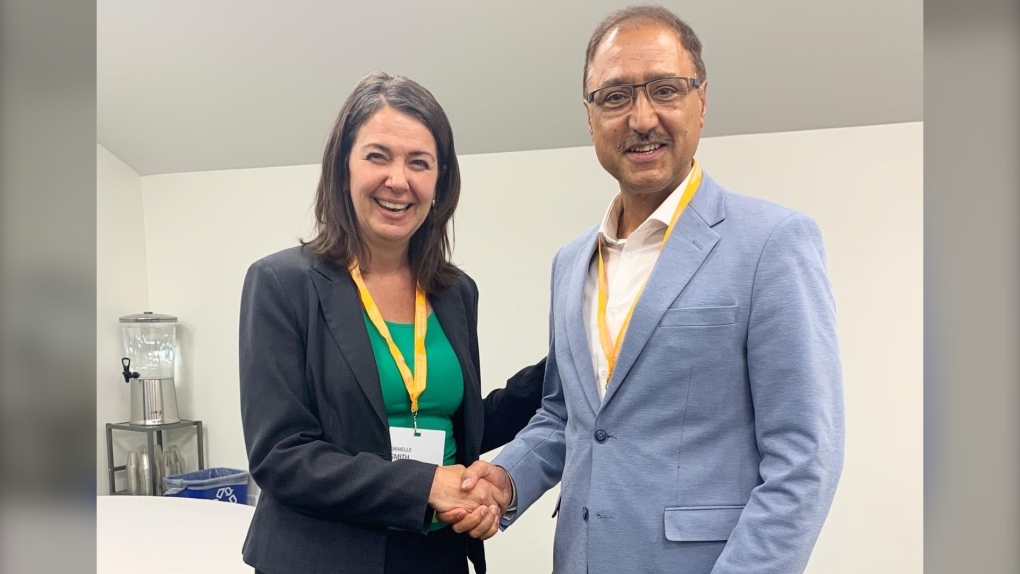
Edmonton’s mayor says the Alberta government has short-changed the city by about $1 billion in infrastructure funding over the last few decades.
Amarjeet Sohi accused the province of the underfunding among other things in a letter he sent on Tuesday to Premier Danielle Smith in response to concerns she raised last week about the city’s “alarming” financial state.
Smith offered a provincial audit to the City of Edmonton if it wants one.
Sohi said at a media conference on Tuesday the city is compliant with legislation “in all aspects of operations, including with financial policies, which are well within legislated limits.”
He said Edmonton’s financial challenges “are mainly caused by the lack of consistent and equitable support from the Government of Alberta.”
“I have highlighted in my meetings with the premier, with ministers and administration that Edmonton is not getting its fair share of the support that we need from the provincial government,” Sohi said.
“We are a service hub for a larger population. We serve regional municipalities, we also serve northern Alberta and there are added pressures on Edmonton for which we do not get compensated.”
Among Sohi’s list of provincial funding grievances is a move he says impacts Edmonton, as the capital city, more than most other communities: A 2019 government decision to pay 50 per cent of property taxes on provincially owned buildings in Alberta.
“Losing $14 million every year in uncollected property taxes is something that’s causing a lot of pressure on other property taxes because somebody has to make it up,” Sohi told reporters, adding that change alone would eliminate the deficit city council is looking to address.
“Homeowners are making it up, and other business owners are making it up.”
Other funding shortfalls Sohi lists in his letter include money the city spent to address a shigella outbreak last year, reduced photo-radar revenue and the use of city firefighters to address gaps in paramedical services.
He also highlighted how the city pays for maintenance of provincial highways 2 and 16 through the city while the province picks up the tab to maintain Calgary’s portion of Highway 2, Deerfoot Trail.
“There are many ways that downloading from the province has put pressure on property taxes,” Sohi said.
“If the province starts stepping up to meet its constitutional obligations, we can use those resources not only to reduce the property tax burden on owners in Edmonton but also continue to invest in quality public services that Edmontonians rely on.”
Sohi said if provincial funding formulas “were designed based on specific circumstances and the obligations Edmonton has, we would have received close to $1 billion more from the provincial government in infrastructure dollars.”
Smith said Tuesday in Calgary that she has read Sohi’s letter and would consider having the province assume providing services under its authority.
“We have to make sure that we’re being fair, so if there are policy changes that make sense that would apply across the board to other municipalities, we’ll have to consider doing that,” Smith told media.
“If there are ways that we can take on some of the various services they’ve provided that aren’t in their jurisdiction that are in our jurisdiction, I’m open-minded about that as well.”
Sohi said his relationship with Smith’s government is “productive” and that the city wants to make it stronger.
“It’s not a lack of trying on our part,” he said. “The premier has been open to meeting with me and we have met a couple of times, we always interact in public events, and we always talk about what the needs of Edmonton are.”
With files from CTV News Edmonton’s Jeremy Thompson